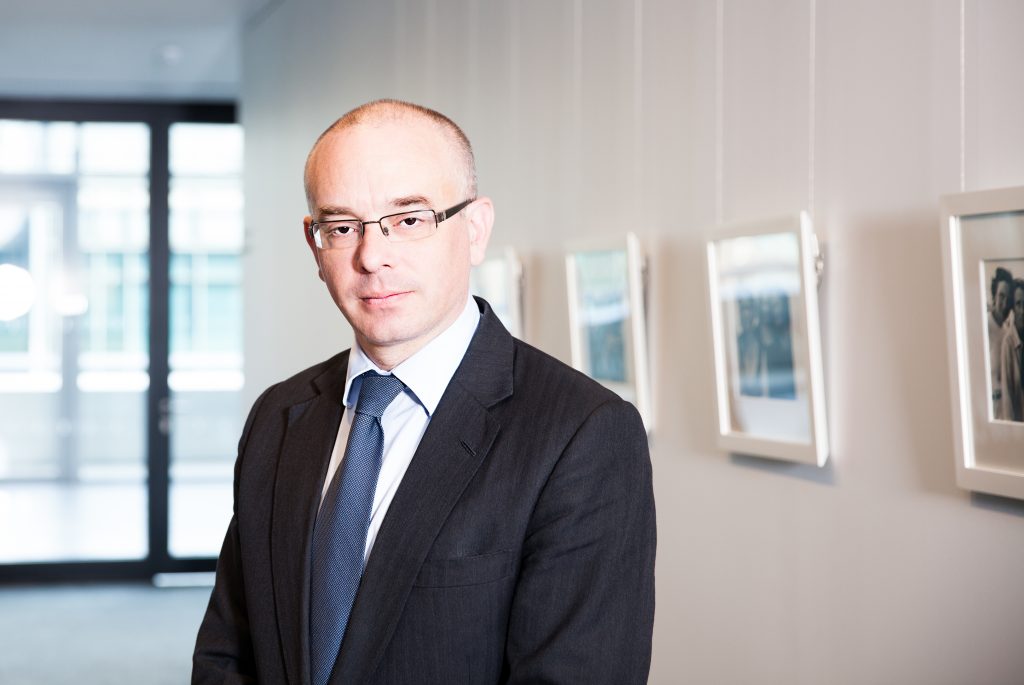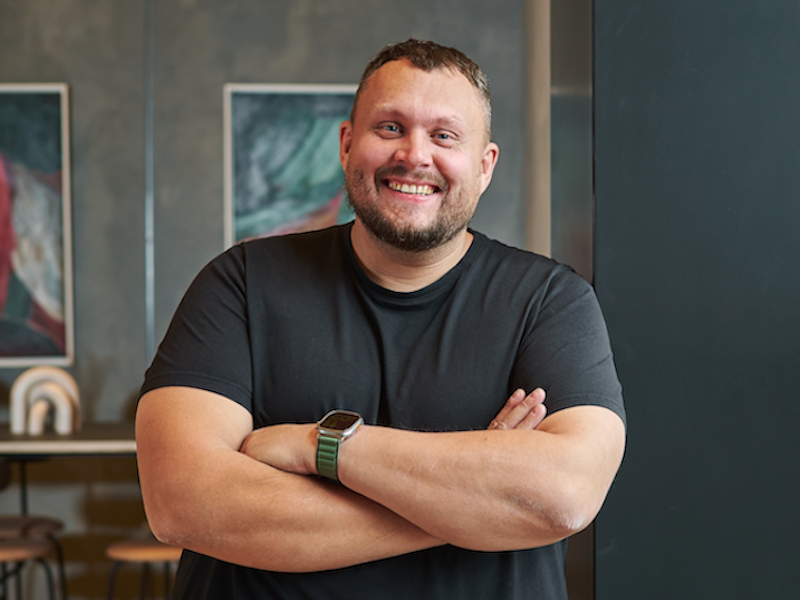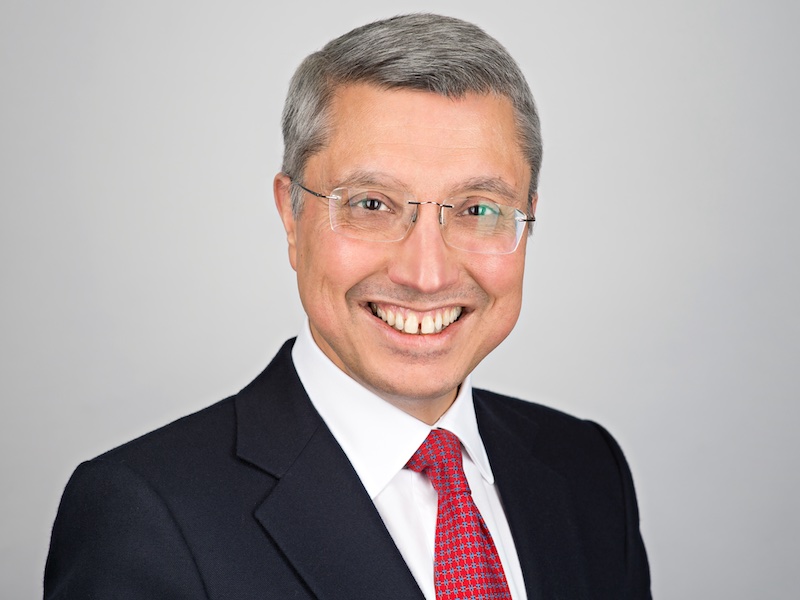 Paul is the Chief Economist of UBS Global Wealth Management. He is a member of the Global Investment Committee, and (despite being told to stop studying art at the age of twelve) sits on the UBS Art Board.
Paul is the Chief Economist of UBS Global Wealth Management. He is a member of the Global Investment Committee, and (despite being told to stop studying art at the age of twelve) sits on the UBS Art Board.
He is a UBS Opinion Leader, and a member of UBS Pride. He participates in the UBS Nobel Perspectives program and is a supporter of the UBS Women in Economics program.
Paul is responsible for developing and presenting the UBS economic outlook, marketing the UBS view on economics, policy and politics around the world. He regularly appears in the print and broadcast media, and is a reluctant Tweeter on economic issues. Paul started at UBS Investment Bank as an intern in 1992, and was Global Economist before moving to Global Wealth Management in August 2016.
Paul has an MA in Philosophy, Politics and Economics from Oxford University. He is an Honorary Fellow of St Anne’s College, Oxford, sitting on its investment committee, and is a member of the Vice-Chancellor’s Circle of Oxford. He holds an MSc in Financial Economics from the University of London. Paul is also a co-founder of the Peter Culverhouse Memorial Trust (a cancer research and patient care charity). He is an amateur heavyweight boxer, and keen skier.
Paul co-authored “From Red to Green? How the financial credit crunch could bankrupt the environment” with Julie Hudson, published in August 2011. “Food Policy and the Environmental Credit Crunch: From Soup to Nuts”, also co-authored with Julie, was published in September 2013. Paul contributed to “How the world really works: the economy”, a children’s guide to economics published in May 2014. His book “The Truth About Inflation” was published in April 2015, with a Spanish language version published in September 2018. His latest book “Profit and Prejudice: The Luddites of the Fourth Industrial Revolution” was published in November 2020.
Why do you support the HeForShe campaign? For example – do you have a daughter or have witnessed the benefits that diversity can bring to a workplace?
I have been researching the economics of diversity and inclusion (or the economics of prejudice, to take the negative aspect) for some years. The economic damage that prejudice in any for does is very obvious. The economic benefits that can be achieved from a diverse and inclusive working environment are significant, and are only likely to increase as we enter into a period of increased structural change in the global economy.
Why do you think it’s important for men to support gender equality in the workplace?
Gender is the biggest diversity issue, because of how many people it affects. It is also (generally, not always) a visible form of prejudice, where prejudice occurs. If men are not supporting gender diversity, then what does that say about their attitude to other areas of prejudice – affecting fewer people, or which are less visible?
I also think that men need to be involved in the discussion about gender equality early on, to reduce the risk that they feel threatened about the discussion. There is always a risk that if people are made to feel threatened, or made especially uncomfortable by the debate they will react in a very defensive manner. This then limits any kind of progress.
How welcome are men in the gender equality conversation currently?
I think this varies according to the people involved. I think that there has been a general shift to “conversations of people” rather than the artificial binary of “ conversations of men versus women” (which is itself a prejudiced framing of the debate, excluding non-binary for example.). That shift has helped to include men in gender conversations.
The broadening is not universal, and I feel in societies where diversity is more about legal policy than genuine culture there is a
Do you think groups/networks that include the words “women in…” or “females in…” make men feel like gender equality isn’t really their problem or something they need to help with?
I am not sure that such phrasing makes men feel that they are absolved of responsibility – but there is a risk that they feel excluded from the discussion. I think that where men recognise that there is a gender diversity problem they feel that they should be part of the solution. There is perhaps a diffidence about how to become involved in creating a solution when confronted by language that is overtly exclusionary.
What can businesses do to encourage more men to feel welcome enough to get involved in the gender debate?
I think that open and honest discussion about the issues is always helpful. Companies should not seek to present themselves as perfect, or improving. Realism is an extremely helpful device in discussing diversity or the challenges of prejudice.
Traditionally there has been a focus on mentoring, but reverse mentoring can also be valuable. For example, having younger male staff mentored by a woman can give men important insight into the importance of diversity early in their careers.
Do you currently mentor any women or have you in the past?
I do not at the moment, but I have done in the past. I have always sought to mentor people as people. I have also managed women (indeed at one time had only women direct reports).
Have you noticed any difference in mentoring women – for example, are women less likely to put themselves forward for jobs that are out of their comfort zones or are women less likely to identify senior roles that they would be suited for?
I am not sure that I have a large enough sample size to draw any conclusions. I have mentored or managed women who have been reluctant to leave their comfort zone, but then I have had exactly the same experience with male colleagues. Similarly I have had ambitions female and male colleagues. It depends on the personality traits. I would not like to generalise from the limited experiences I have had.
WeAreTheCity has a back catalogue of thousands of HeForShe interviews, including Suki Sandhu, Philip Baldwin, Asif Sadiq MBE, Rob Neil OBE and many more. You can read about all the amazing men championing gender equality here.








